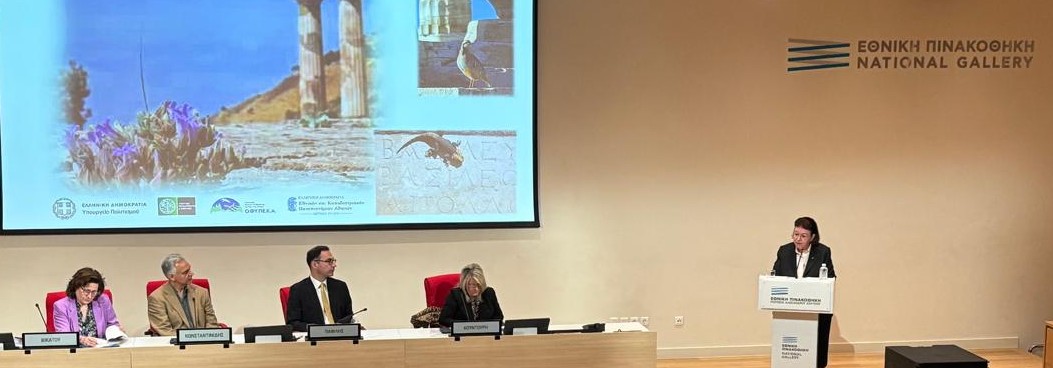
In the presence of the Minister of Culture Lina Mendoni and representatives of the scientific community and competent bodies, the official presentation of the project BIAS (Biodiversity in Archaeological Sites) took place today at the amphitheatre of the National Gallery. The project is a collaboration between the Ministry of Culture, the Ministry of Environment and Energy, the Agency for the Natural Environment and Climate Change and the National and Kapodistrian University of Athens (NKUA).
BIAS is an innovative, holistic approach to the cultural landscape, examining the complex interaction between man and nature. Its central objective is to highlight Greece’s unique cultural heritage, which includes both the natural and man-made environment.
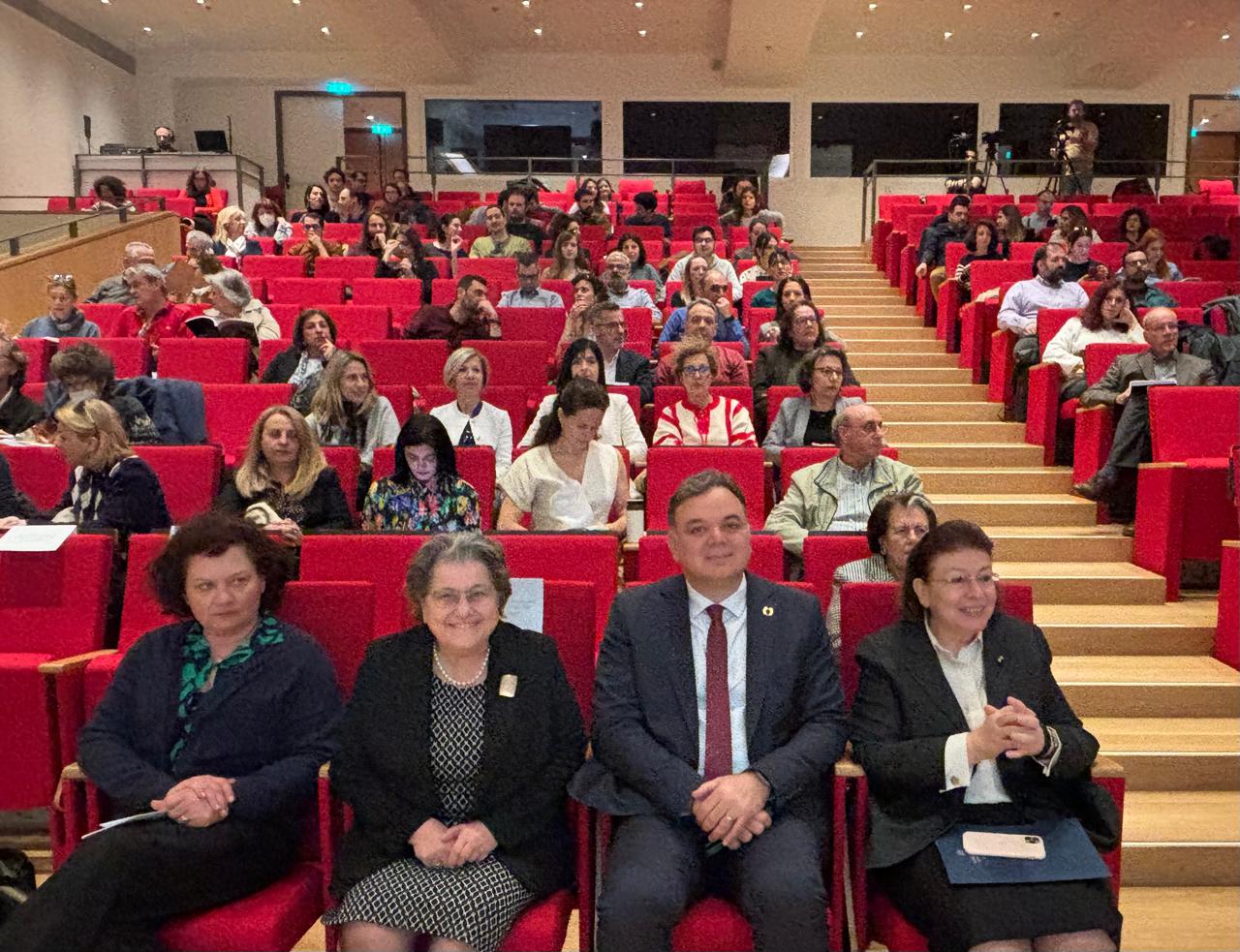
During the event, the Minister of Culture, Lina Mendoni, stressed the importance of the project, noting that archaeological landscapes function as living ecosystems, where nature and man coexist and interact for centuries. “The results of the BIAS research project, completed in the autumn of 2024, have been impressive, far exceeding our expectations. Not only did they confirm the indications that the archaeological sites have highly remarkable flora and fauna, but they demonstrated a density and diversity of species that makes them, without exaggeration, natural biodiversity refuges and ecological treasures, especially in contrast to the surrounding areas. The importance of archaeological habitats is impressive, as while they represent less than 0.1% of the Greek territory, they host almost 11% of Greek biodiversity. These figures are in line with the fact that Greece is one of the most biodiverse countries, hosting one in three European species, while occupying only 1.3% of the European territory.
The BIAS Project
Greece, with its unique natural and cultural heritage, is following the modern trend of an integrated promotion of its natural and cultural landscape. In this context, in August 2022, the Ministry of Culture, the Ministry of Environment and Energy, the O.FY.P.E.K.A. and the National Academy of Sciences signed a programmatic contract for the recording of biodiversity in 20 emblematic archaeological sites. Some of them belong to UNESCO World Heritage Sites, while others coincide with Natura 2000 sites. In three cases (Delphi, Meteora, Olympia), both of these designations are present.
These sites, scattered throughout the Greek territory, include monuments of different historical periods: Acropolis-Ancient Agora-Lophi, Epidaurus, Olympia, Philippi, Messini, Aptera of Chania, Mon Repos Corfu, Dodoni, Nicopolis, Meteora, Agios Achilleios of Prespes, Old Town of Ioannina and Island, Acrocorinth, Gramvousa-Balos, Mystras, Delos, Sounion, Vravrona, Delphi and Phaistos.
The project was funded and evaluated by the O.FY.P.E.K.A., while its implementation was undertaken by the Department of Biology of the University of Athens, with Professor Panagiotis Paphilis, Professor of Animal Diversity, being the scientific leader of the project. In order to successfully complete such a demanding project, the NKUA collaborated with eight other university and research institutions: the Aristotle University of Thessaloniki, the Agricultural University of Athens, the University of Patras, the University of Ioannina, the Democritus University of Thrace, the Natural History Museum of the University of Crete, the Mediterranean Agronomic Institute of Chania and the Hellenic Centre for Marine Research.
The numbers reflect the size of the project: 49 researchers carried out 586 days of sampling and 90 days of laboratory analysis. The Ministry of Culture issued a special permit to carry out the research within the archaeological sites, while the Ministry of Environment and Energy granted corresponding research permits. The fieldwork started in March 2023 and was completed in September 2024, with a total budget of 258,500 euros (before VAT).
The Bias project highlighted 10,460 species of flora and fauna in the 20 archaeological sites, of which 4,403 are unique records. These findings demonstrate the important role of archaeological sites in the conservation of Greek biodiversity, underlining the need for integrated strategies for their protection and enhancement.
A first publication of the very important results of the research project was presented at the conference by the Professor of Biodiversity of the University of Athens and scientific coordinator of the VIAS project Panagiotis Paphilis, the Professor of Plant Systematics & Biodiversity of the University of Athens Theofanis Konstantinidis, the Director General of Antiquities and Cultural Heritage Olympia Vikatou and the Director of Prehistoric and Classical Antiquities Elena Kountouri. The results are presented in detail in the printed publication, edited by the Department of Biology of the University of Athens, which includes the data of the flora and fauna species recorded in the 20 archaeological sites of the BIAS Programme, as well as useful introductory information on the history and the particularities of these sites, from the local Ephorates of Antiquities of the Ministry of Culture. OFYPEKA also developed a bilingual website with all the material.
The excellent results of the BIAS Programme, which has been piloted, pave the way for renewal and expansion of cooperation. The BIAS II Programme is already being planned, which will involve the implementation of biodiversity research in an even larger number of archaeological sites throughout the country, as well as the collection and study of data documenting the Greek flora and fauna from antiquity to modern times from archaeological, historical and archival sources. Finally, the exploitation of the research results of the first phase of the BIAS Programme is promoted through the development of routes and exhibitions within museums in the emblematic archaeological sites of Ancient Olympia, Delphi, Mystras, Delos, Ancient Messina and the Ancient Agora of Athens, as well as the creation of a special Environmental Education Pavilion in Ancient Olympia.
The event was attended by the Secretary General of the Ministry of Environment and Energy Petros Varelidis, the Secretary General of the Ministry of Culture George Didaskalou, the Rector of the National and Kapodistrian University Gerasimos Siasos, the Managing Director of OFYPEKA Konstantinos Triantis, the Director of protected areas of Sector A of OFYPEKA Dionysia Chatzilakou and officials of the Ministry of Culture.


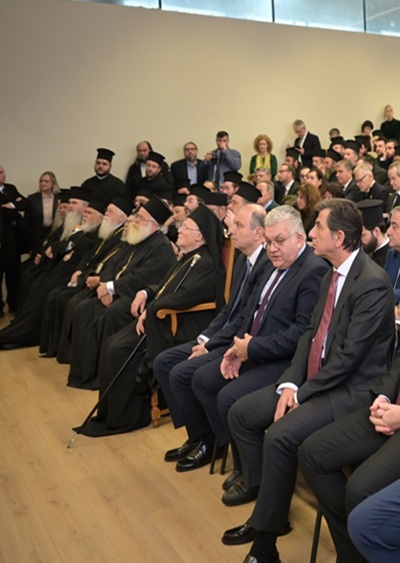
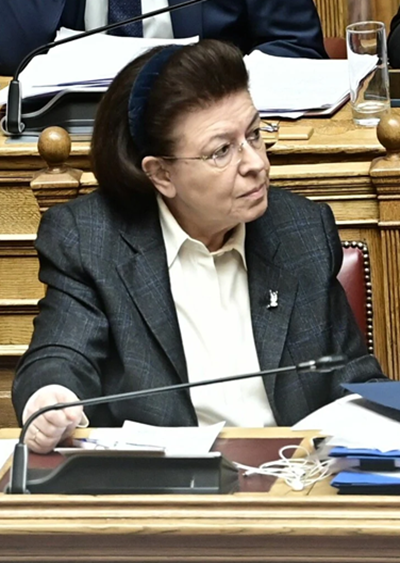
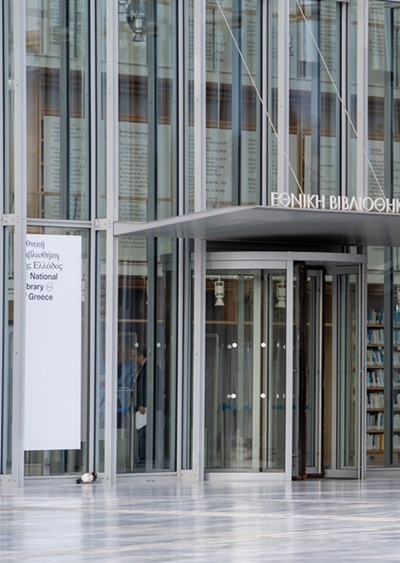


Leave A Comment